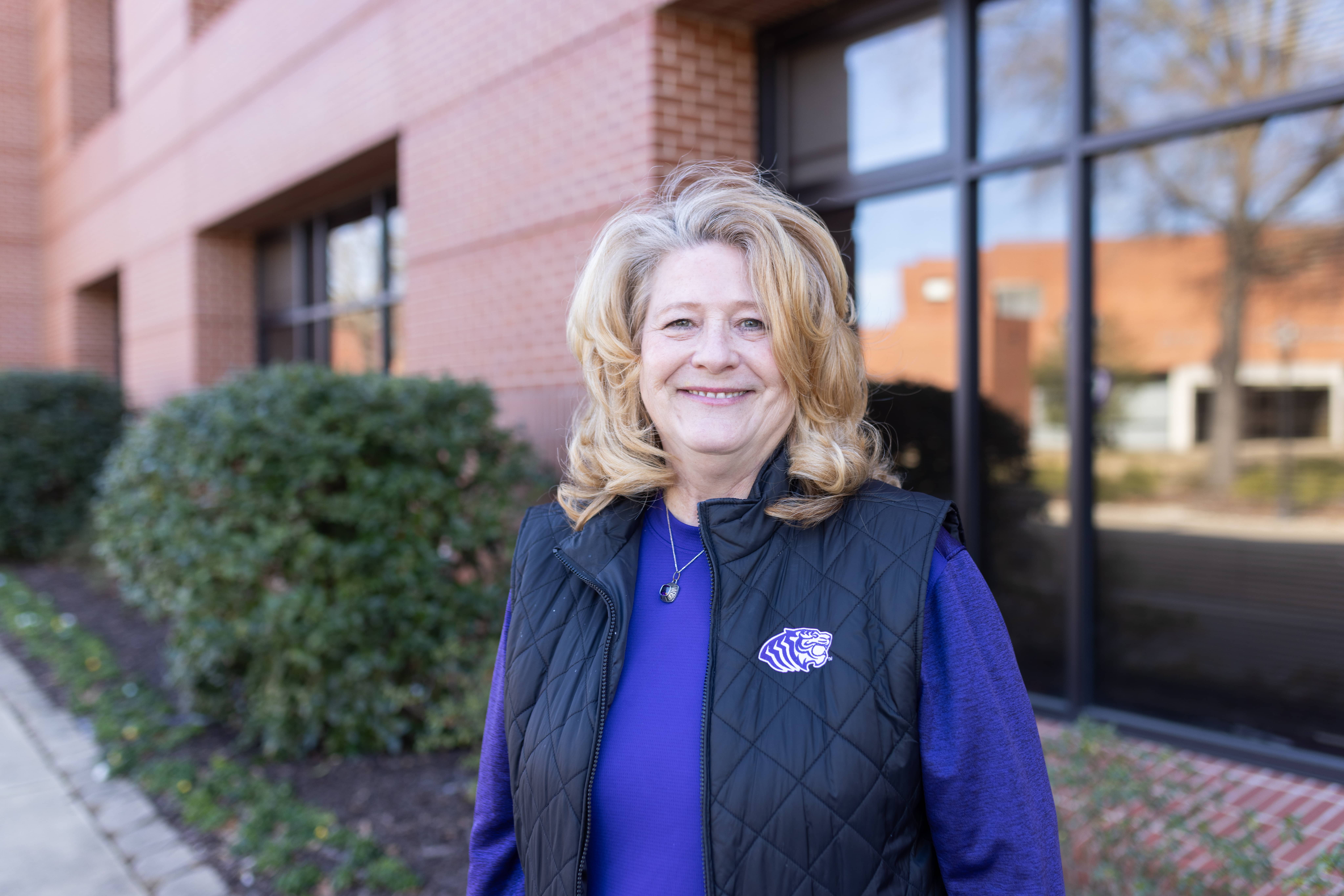Senior biology major Emily Evans has been developing a thesis on how to treat retino blastoma, the cancer of the eye.
“Basically, I am using ajulaemic acid to treat retino blastoma cells,” Evans said. “And so, the aju comes from work … [Dr. Lori Hensley’s] lab has currently been doing, but the retino blastoma is new to the research. I chose it because I wanted to do something related to eyes.”
Evans’ research is closely related to her goals.
“I plan to be an optometrist,” Evans said. “I’m currently applying to the University of Houston’s optometry school.”
Evans has always had a passion for medical science.
“I chose my major because I wanted to do something in the health profession, as far as career goes,” Evans said. “And the best way to get there is through a science major, either biology or chemistry. I began as a chemistry major, because I took AP chemistry in high school, and I found it fascinating. Then I realized I enjoyed my biology classes a lot more. Anatomy was my favorite. I still love chemistry, though. I kept a chemistry minor.”
Evans has been planning her research for more than a year.
“Dr. Hensley is leading my thesis,” Evans said. “She was my anatomy professor, actually. I had planned to work with her three or four semesters before I did. I heard that it was great working with her, so I knew I needed to ask early to get in with her schedule, and she said she had an opening three semesters later.”
Many science majors have an appreciation for Dr. Hensley.
“Anyone who took Anatomy would want to go into the medical sciences,” said biology major Anna Roop. “Well maybe not, but they would at least have a greater appreciation of the body. Dr. Hensley just does that for people. She makes me want to be a teacher.”
Evans joined the honors program her freshman year.
“I was asked to interview and apply my freshman year,” Evans said. “And I decided it would be a great opportunity to get to study something interesting that I enjoyed learning about, and it would also set me apart from other optometry applicants. I was a little bit nervous. College was a whole new level of academia and professionalism that I had never experienced.”
Evans doesn’t necessarily plan to expand on her research in graduate school, though she might pick it up later.
“I’ll mention it in my interview, because I will get a bound copy of it,” Evans said. “The research I have done has opened my eyes to research, and I would like to expand on it further down the road, but my graduate program doesn’t require research. But you can do research in optometry, and if decided to go that route I could be an optometry professor. After I have my OD (optometry degree), then there’s all these different things I can do. I can have a private practice, work in a hospital or I can work in an application setting.”
Graduate school applications are complex and difficult tasks.
“It’s a very big process,” Evans said. “Different programs require different admissions tests, and for optometry school, the OAT, optometry admissions test, is required. I actually studied all summer for the OAT. There is also an interview process and recommendation letters, which can require recommendation from a committee of professors. There is an on-campus committee for future medical students called the Pre-Health Professions Committee. I interviewed with them, and then they wrote one large recommendation.”
Getting into graduate school does not end at the application process. “Then of course there is your GPA, extracurriculars and transcripts,” Evans said.




